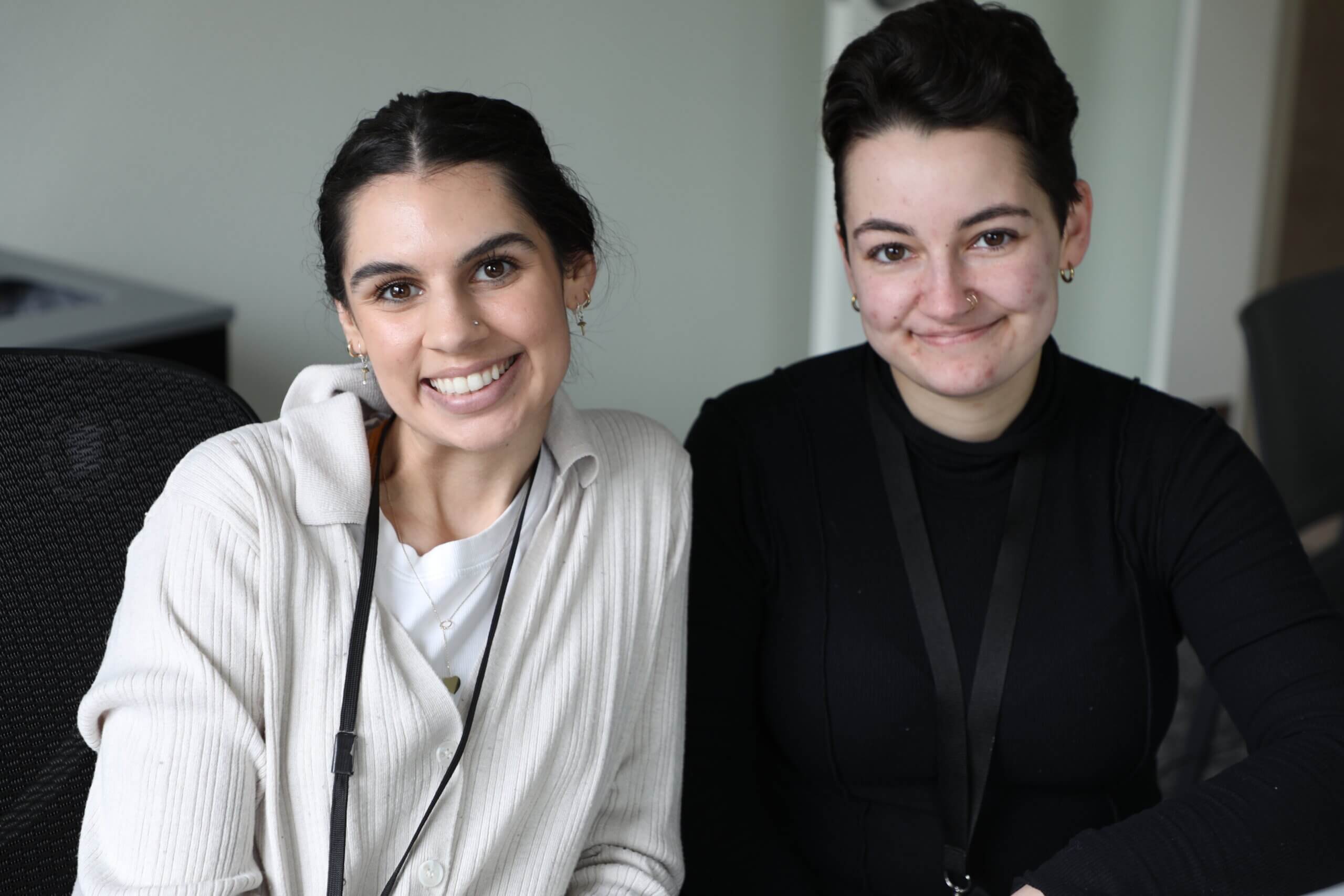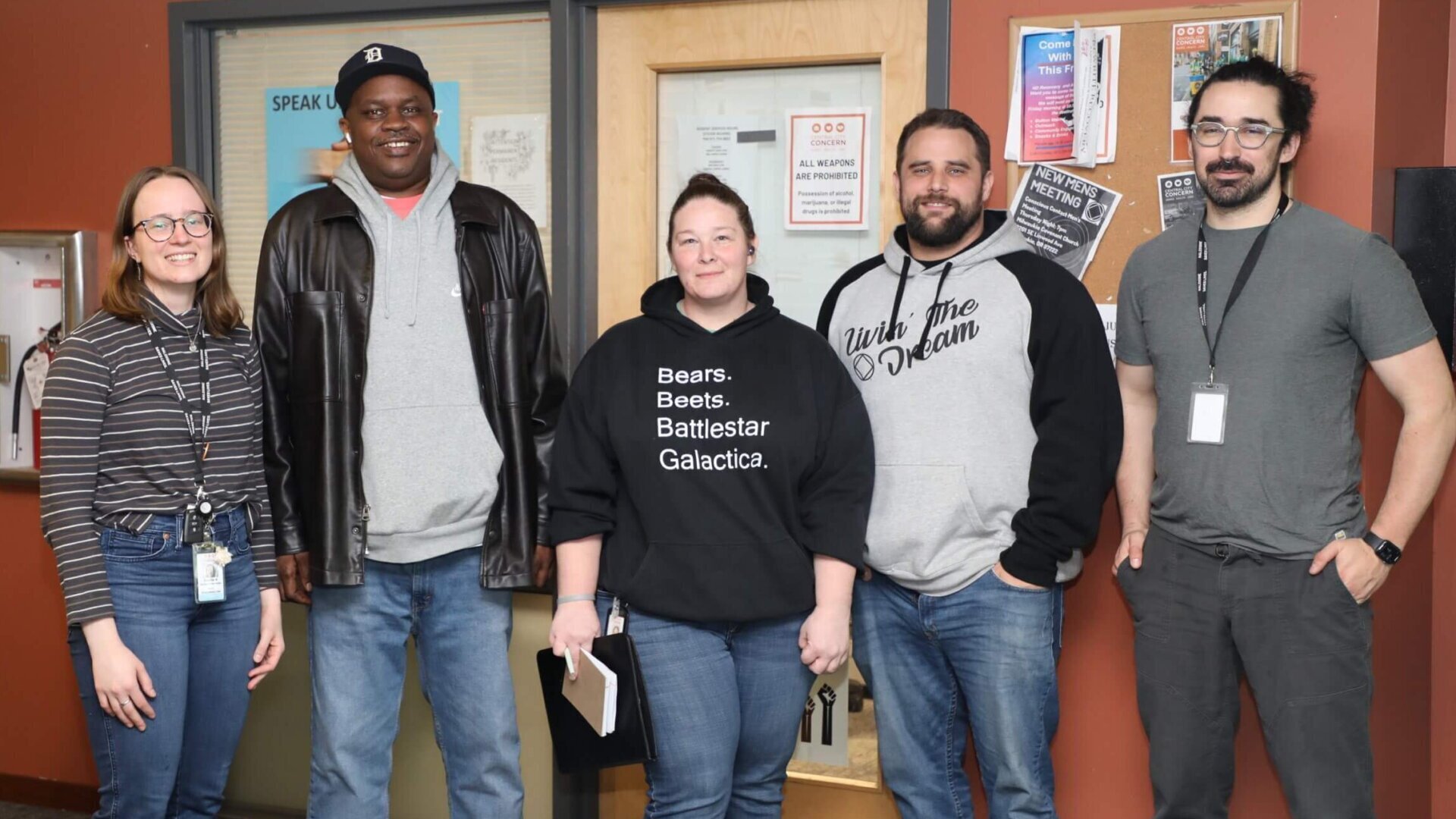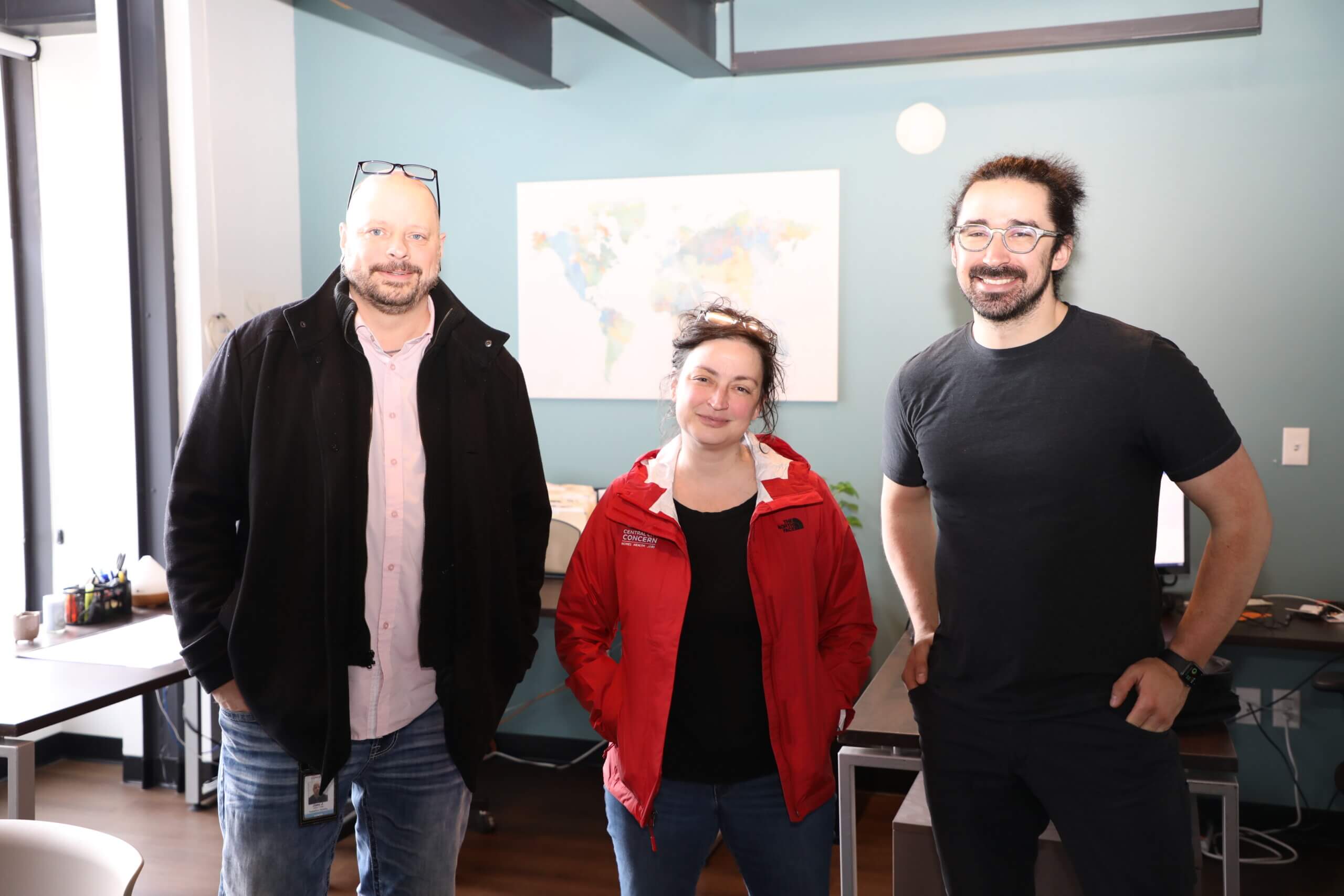CCC offers holistic, client-centered compassionate care with the mission of helping those struggling with life’s biggest problems to end or avoid homelessness and build healthy, housed, resilient and engaged lives. Building and maintaining affordable housing is only part of the solution. Ending homelessness in our city requires collaboration and relationship-building from our connected programs and services. It would be impossible to identify all the ways we work together but we’ve identified a few examples that embody the spirit of what we do here at CCC.
Let’s look.
Housing as a Health Share Benefit: Preventing Homelessness

CCC’s Housing Benefit Supervisor Claudia Fischer is leading a team of housing specialists implementing a new pilot program offering housing as a HealthShare (Medicaid) Benefit in partnership with OHSU. The program offers services to clients on the Oregon Health Plan and currently covers housing needs for up to 12 months including rental assistance, eviction and remediation costs.
The program partners with Multnomah, Washington and Clackamas County departments of corrections, the Mental Health and Addiction Association of Oregon (MHAAO) and internal CCC partners such as the Employment Access Center to write and receive referrals for housing support service payments and employment opportunities.
To date, the program has helped 70 clients with an additional 75 waiting to be assigned a navigator. “Things are always changing and someone who is in active addiction with mental health challenges is a lot different than someone who needs basic medical care,” said Fischer, “I’m in meetings all day long, chatting with community partners, figuring out client situations and making sure they are all on successful paths.”
Housing Specialist Amy Borton said she meets with 3-4 clients per day and is in constant communication with OHSU care coordinators. She took a moment to illustrate the complexity of her caseload. “One client was very hard to house, homeless for a long time, had a criminal history and every other barrier you can think of. We finally found a permanent housing solution; she was denied but we appealed, and she is finally housed.”
Recovery Housing: Navigating Primary Care and Mental Health

CCC’s Client Access Service Navigator Camille Marshall supports CCC’s recovery housing programs at the Richard Harris, Estate Hotel and Madrona properties overseen by Trevor Nissen and Sarah Holland. One of her main responsibilities is assessing people’s mental health and medical needs while connecting them to primary care and mental health services at the Blackburn Center and the Old Town Clinic. She described her relationship with case management teams as “symbiotic,” relying on them for context and background on client conditions while serving as a resource to be called upon. Camille has 128 clients on her caseload and has provided general assistance to 121 while spearheading a new telehealth initiative to make care more accessible.
Cedar Commons: A Comprehensive Approach

Associate Director of Supportive Housing Joey Johns took a moment to share his experience in co-managing Cedar Commons, a special CCC property that serves clients facing severe mental health challenges. He and his counterpart, Manager of Mental Health Integrated Housing Gordon Keepers, oversee the work of a peer support specialist, case manager, certified alcohol and drug counselor (CADC), a qualified mental health professional (QMHP), a full-time property manager and community building assistants.
Cedar Commons is unique in that it provides wraparound services for clients facing severe mental health challenges, so they do not enter or return to homelessness. “Our team works in the same office space, there’s no separation and they are viewed as one team by our clients,” said Joey. “The staff removes as many barriers as they can to access providers, perform case plans and staff situations so clients can get the services they need…our primary role is to coordinate care.”
Successful collaboration is the bedrock of our client-centered approach. Many of the clients CCC serves face complex challenges, all with unique differences and needs. Our approach addresses both the systemic drivers of homelessness and the individual factors that can reinforce it. We help our clients overcome barriers such as lack of affordable housing, health care and living-wage jobs, systemic racism, mental health challenges, chronic health conditions, substance use disorders, and time spent in the justice system.
Everything we do rests on our foundational belief in the restorative power of human connection and dignity. Navigating this path is made possible by those whose roles embody that approach but also by every member of our connected programs and services. Embracing this client-centered approach requires constant communication, healthy relationships and lots of teamwork.
Collaboration is what makes CCC unique. Support our mission and help people find hope and healing today.